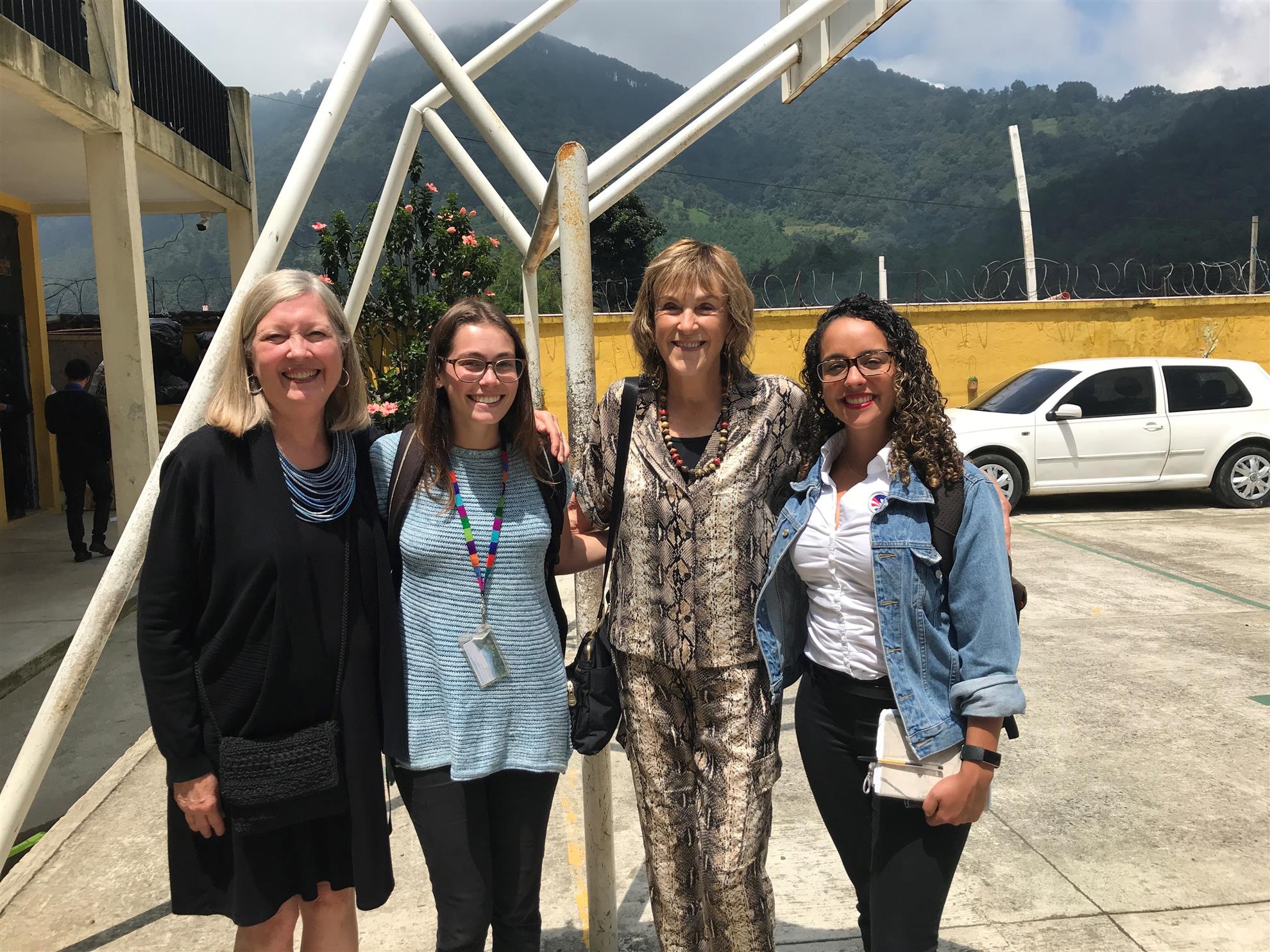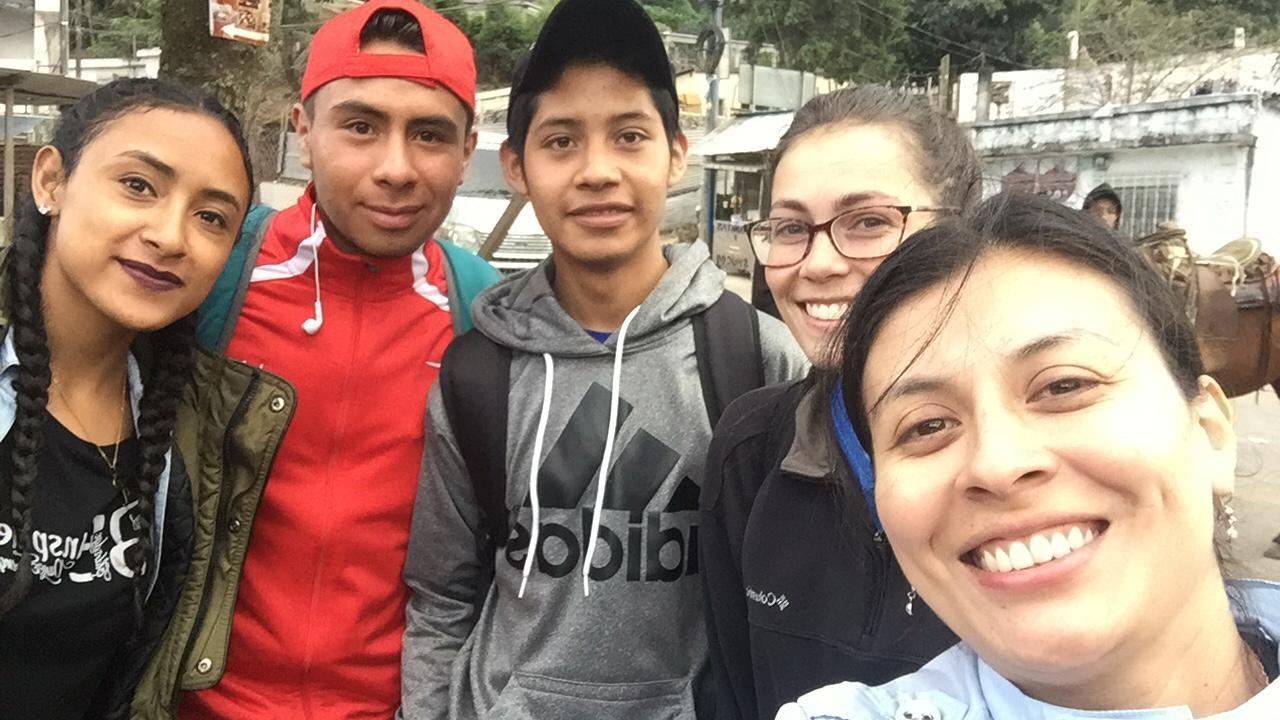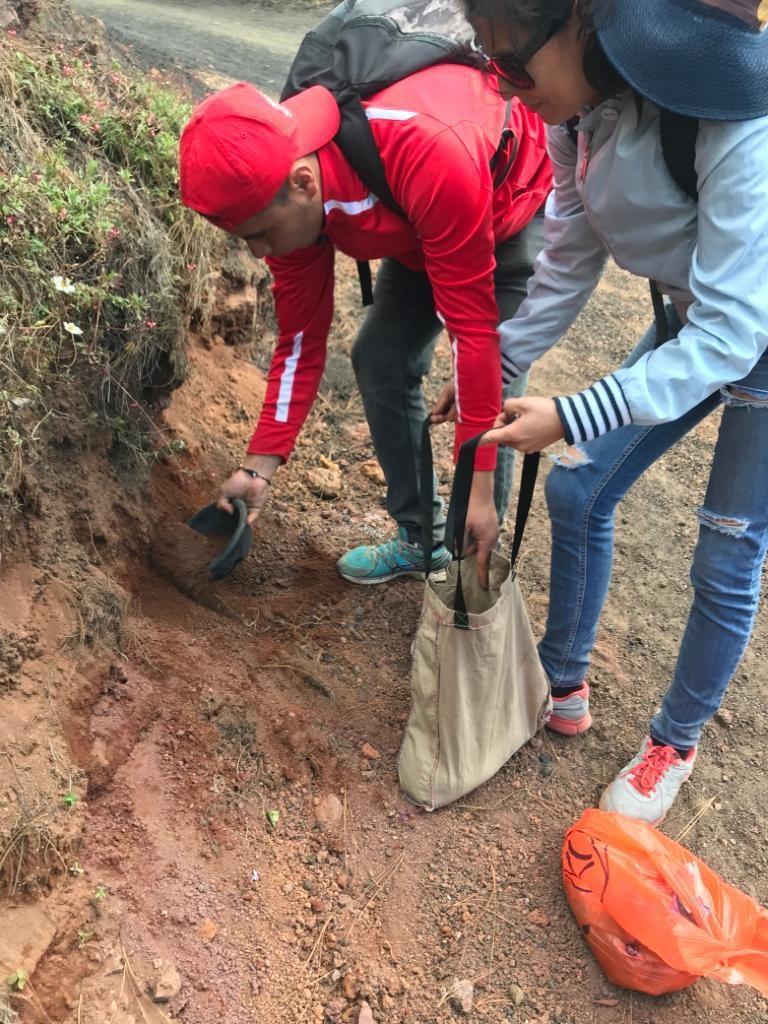I am a Rotary Cadre who evaluates projects in Central and South America. Having been a former Peace Corps volunteer in Brazil (1966-68) and worked for many years on federal and state-run education grants in the US, makes being a Cadre for Rotary a perfect fit for me.
This past February, 2019, Rotarian water and sanitation expert Mark Balla from Australia and myself evaluated the WINS Rotary grant, visiting 15 of 48 schools involved in sanitation, menstrual health, and hand washing education.
One of the schools we visited was a high school, Instituto Mixto Municipal de Diversificado (IDM) in Santa Lucia, Guatemala. We were impressed by the efforts in expanding the students' preparation for careers (secretarial science and accounting) to include saving the environment in Guatemala and the planet! We watched the students simulating real business solutions: recycling trash to make rugs and a rudimentary attempt making renewable menstrual pads. They also were beginning to produce organic soap. They just needed some infrastructure and support.
When I returned to the US, I applied for and received a Rotary District Grant - Keeping Guatemalan Girls in School, which was made possible by donations from private donors, GoFundMe, and Rotary clubs in San Diego, California and Melbourne, Australia.
Grant Goal: In Guatemala, girls need help remaining in school. Elementary school is free and provides free meals, but when girls start their menstrual period they often drop out of school without adequate menstrual products and facilities. Junior high and high school cost money (tuition, books and uniforms) forcing 75% of Guatemalan children to stop attending school, which can lead to a pattern of poverty. This project targets high school girls (and boys) to continue their education and to learn entrepreneur skills, enabling them to become self-sufficient, contribute to the community, and have the confidence to pursue a future, keeping pace in today's work market and technology.
I started the grant in Guatemala in September hiring a local project manager and scouting for local Peace Corps volunteers who might help. I found Lauren Devol in our target community, whose role in Guatemala is to support community economic development. She and I developed a strong relationship for this grant - she in Guatemala and me in San Diego. Lauren is passionate about serving through her role as a connector to empower women, youth and indigenous populations. Although we are 50+ years apart in our Peace Corp service and age, we couldn't be more alike in our fundamental aspirations to help people help themselves. I visited the project in October when I met Lauren and I am planning another trip shortly. When I can't be there, Lauren and the local project manager meet with the 12 students (six boys and six girls), help them evaluate their goals and provide encouragement.

PROJECTS;
1). Reusable menstrual pads. The students decided that as one of their businesses would be the production of menstrual pads. They decided on cloth based, reusable menstrual pads knowing that disposable ones are bad for the environment as well as too costly for the majority of girls and women. Using the students' own design, we are paying a seamstress in the community to cut and sew the protectors and the pads, fulfilling our grant by including the community in economic development. This business is more of a community service project than a money-making one as the students instruct Santa Lucia and nearby community (including remote communities) girls and women on how to use the product. One of the male students is Mayan. Mayan is going to introduce the product to his Mayan community. Yes, the male students have learned to market the product too!

2) Making soap from volcanic ash. Volcanoes are everywhere in Guatemala; many of them are still active and destructive. Why not profit from the volcanic ash to make a useful sustainable product? We believe by targeting tourists from nearby Antiqua that we can make a profit by selling soap (they named EcoMaya) made from local ingredients, including volcanic ash. Lauren has been most helpful in monitoring the students' activities, which include experimenting with local ingredients, packaging, marketing and sales. She and the local project manager even went on a hike with the students up a nearby volcano to get some volcanic ash! This will be the students' first step toward self-sufficiency. The money taken in by the first sales will go toward buying more materials for the product, students' educational needs and aiding in local community development.

The grant ends in April 2020 - a short time, but stimulus for potential further grants. We have changed lives already, mirrored through positivity, smiles, enthusiasm demonstrated by the seamstress, school and students, but mostly Lauren and myself. Our lives have been enriched in ways words cannot describe.
